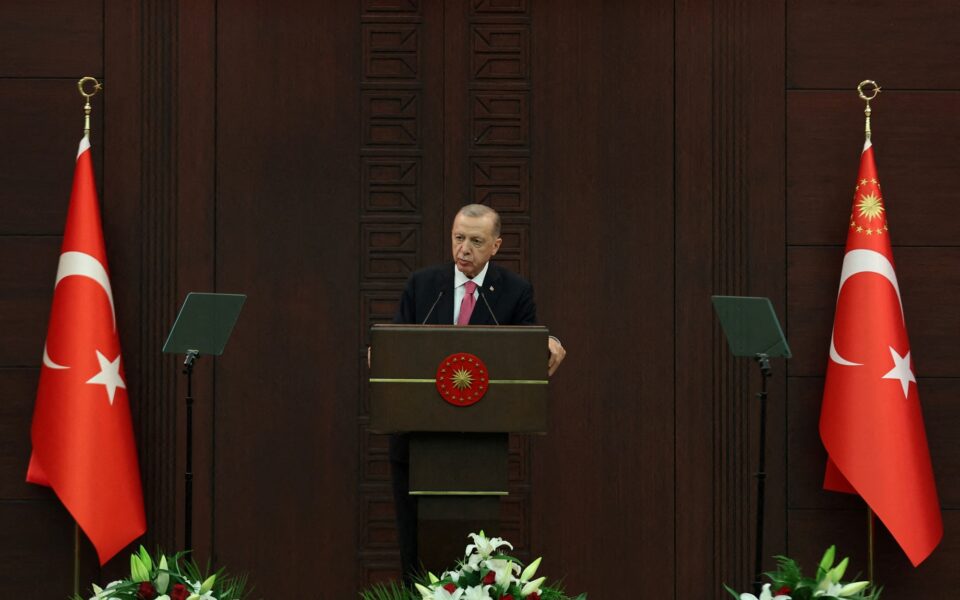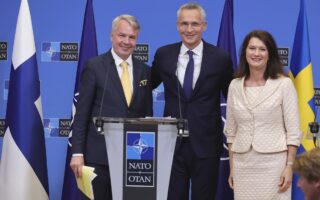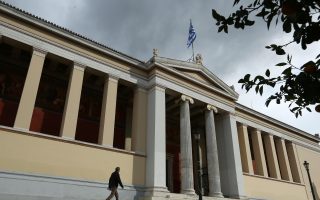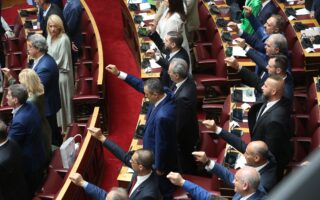Erdogan’s difficult equation in NATO

The upcoming NATO summit in Vilnius on July 11-12 is a first opportunity for Greece and Turkey to pick up the thread of bilateral relations again. The preceding four years started badly, with the sharp increase in refugee and migrant flows in the summer of 2019, and got even worse with the signing of the Turkey-Libya (GNA) maritime deal in November of the same year. The crisis peaked in February-March 2020, with the rush of thousands of migrants to Greece’s border in Evros, and later with the seismic surveys conducted by the Oruc Reis vessel over 82 days.
The tensions eased when Turkey’s relationship with the European Union worsened and Ankara’s ties with the United States deteriorated after the election of Joe Biden as president. There was a lull for a part of 2021, but diplomatically Ankara stepped up its claims, both with the consolidation of the “Blue Homeland” ideology and the first letter to the United Nations, where it linked its demand for demilitarization to the sovereignty of Greek islands.
The meeting between Turkish President Recep Tayyip Erdogan and Prime Minister Kyriakos Mitsotakis in Istanbul in March 2022 took place in a good climate, but the barrage of violations and overflights over Greek islands, which partly led to Mitsotakis’ speech at the US Congress, and Erdogan’s subsequent statement that Mitsotakis “no longer exists” for him (“Mitsotakis diye biri yok”) on May 2022 froze contacts at all levels, sending relations into a downward spiral. The verbal attacks now became threats, with statements like “We will come suddenly one night,” and a warning that Turkey’s Typhoon missile could hit Athens. It took the catastrophic earthquakes in southeastern Turkey to change the climate and bring us into a four-year record of zero overflight activity for nearly five months.
In a recent statement, Erdogan spoke of a restart in bilateral relations and the truth is that since then, most of the comments made by him and his new ministers confirm this mood. Why did this happen? Obviously, the earthquakes and the quick reflexes shown by the Greek side facilitated a revision of his policy. However, it is clear that the reasons are much deeper. Erdogan began to realize the limitations of Turkey’s overstretching, which is why he tried to warm up to Israel and Egypt. Furthermore, his country’s economic crisis forced him to approach the West, even in his well-known reckless way, while after the Russian invasion of Ukraine, Moscow’s weakening position deprived him of an important card that he often used against the West.
In Vilnius, Erdogan will either look for good news, for example from his meeting with the Greek prime minister, to mitigate the reactions caused by his unyielding stance on the question of Sweden’s accession to NATO, or he will become the big protagonist, agreeing to Sweden’s candidacy, after receiving some additional guarantees that might be formulated in a new agreement.
Erdogan began to realize the limitations of Turkey’s overstretching, which is why he tried to warm up to Israel and Egypt, and his country’s economic crisis forced him to approach the West
In the first scenario, the Turkish president – following the lead of the West’s “black sheep,” Hungarian Premier Victor Orban, whose foreign minister has been quick to note that Hungary will follow Turkey in its final decision regarding Sweden – will have to show more compromise in the adoption of the new NATO action plan, which is blocked mainly by the disagreements between Ankara and Washington, in order to shake off the reputation of Russia’s Trojan horse or to vent the anger of those who have long invested in this particular summit for the settlement of the Swedish issue. At the same time, he would also have to show that he is turning a page in Greek-Turkish relations that have plagued the southeastern wing of the North Atlantic Alliance.
At this point, Erdogan will have to maneuver delicately so that he does not fold without securing tangible rewards (already last Thursday, a Swedish court convicted a member of the PKK and the country extradited a person to Turkey) but also does not undermine the rapprochement with the US, which includes, among other things, the reconstruction of the economy and the modernization and procurement of F-16 fighter jets. On the latter issue, thanks to the very good work of the Greek-American lobby, Athens is also involved, as Congress will have to be convinced with tangible proof and not just promises that it will not threaten Greece, in order to green-light the sale.
With the US entering an election year in a few months, it will be difficult for Biden to ignore the legislature for the sake of Turkey. The first face-to-face meeting between Erdogan and Mitsotakis in 15 months will not be decisive but it may prove crucial. First, the personal relationship should be restored, considering Erdogan’s catalytic effect on Turkish foreign policy. Secondly, the two leaders may seek the resumption of some type of contacts, in the form of confidence building measures, exploratory talks, and/or a new platform. Thirdly, a loose or strict timetable could be set to re-evaluate the situation, which will give an indication of their intentions.
The most important thing in the current phase is to consolidate the conditions for de-escalation, to build relative trust through the intensification of contacts at all levels, with an emphasis on (low-level) common challenges. We should keep in mind that Turkish flight activity is unlikely to remain at zero beyond the summer, but above all, that Erdogan’s room for maneuver has shrunk, since he is now part of the deep state, which has assimilated him.
Constantinos Filis is the director of the Institute of Global Affairs, associate professor at the American College of Greece and an international affairs analyst for Antenna TV.





